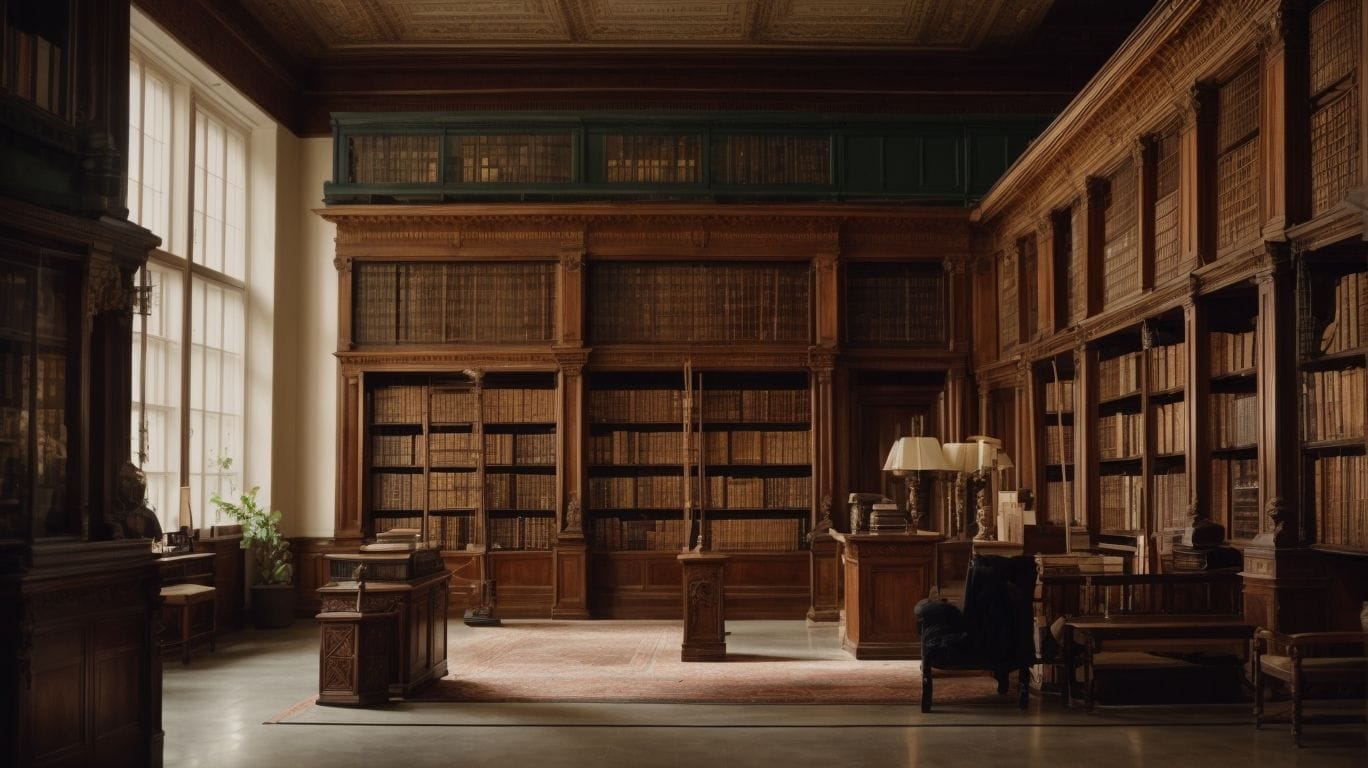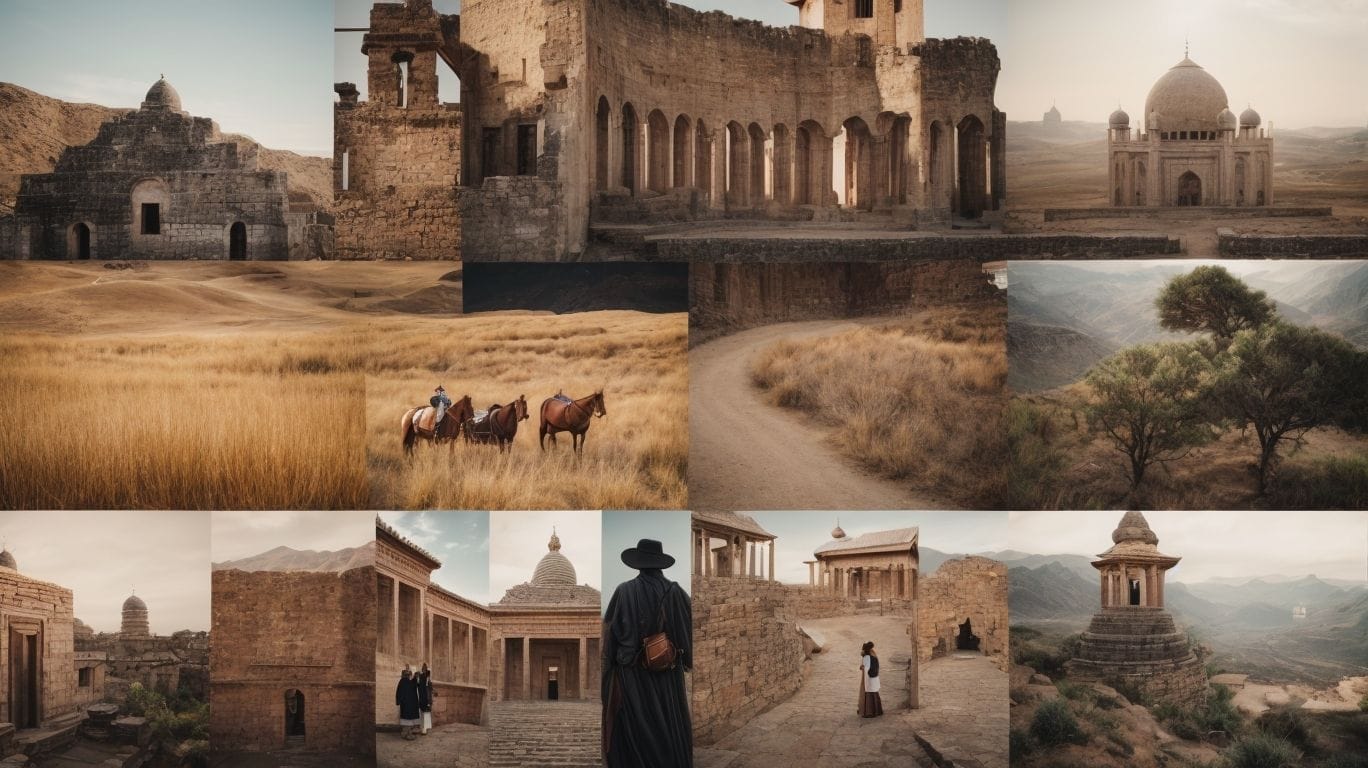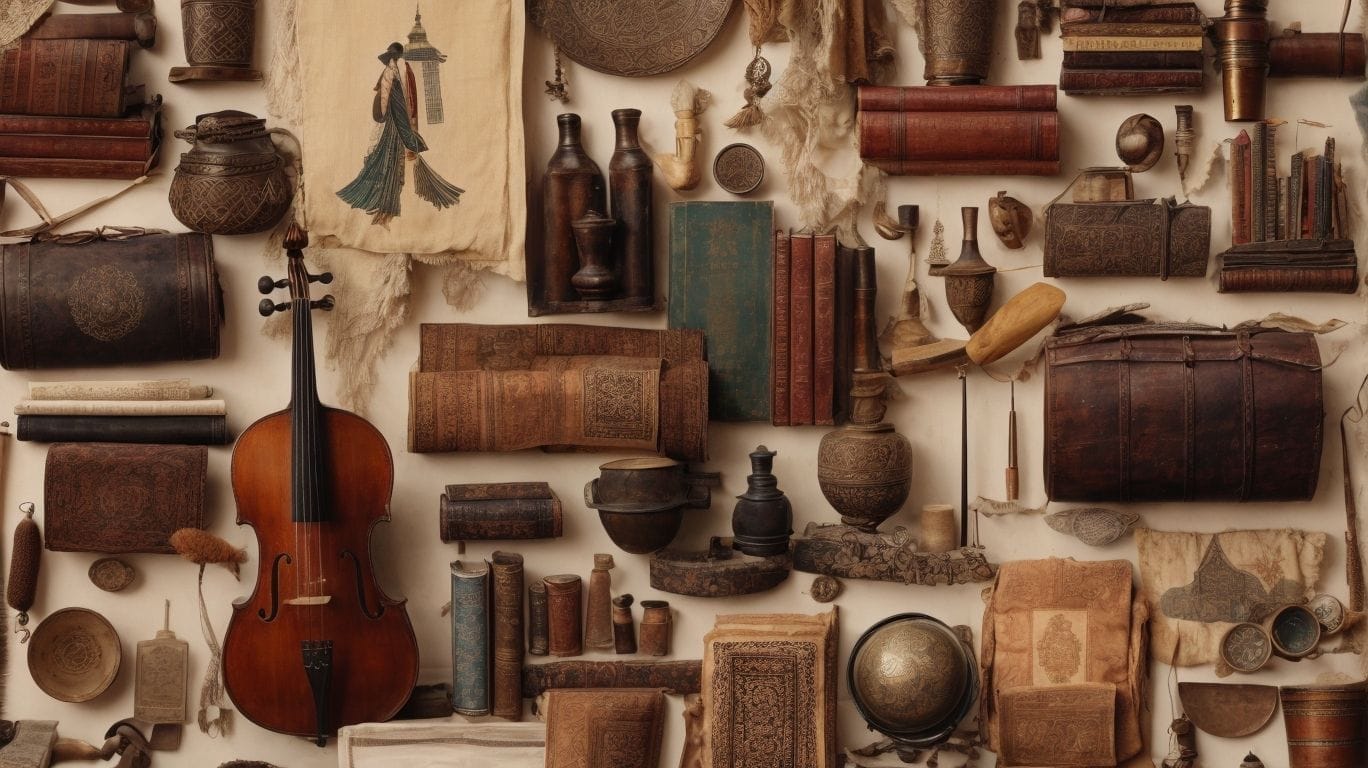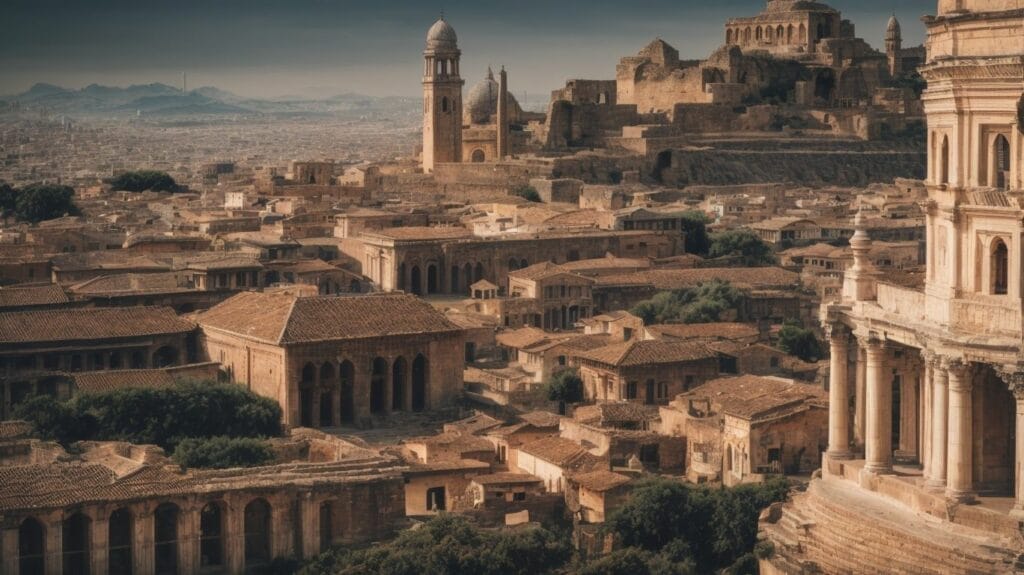Historical and Cultural Themes bring us on a fascinating journey through the intricacies of human history and the rich tapestry of diverse cultures that have shaped our world. From the Department of History to the exploration of regions and pathways in Cultural History, this article delves into the nuanced understanding of the past and its impact on contemporary society.
By examining the definition and significance of Cultural History, as well as its intersections with historiography and popular culture, readers will gain a comprehensive insight into the arts and humanities within historical and cultural contexts. Join us as we unravel the depths of Cultural History and gain a deeper understanding of its relevance in our modern world.
Key Takeaways:
- Cultural history focuses on understanding the impact of cultural and social context on historical events and developments.
- Studying cultural history can provide valuable insights into the motivations and perspectives of individuals and societies throughout time.
- By examining cultural and historical themes, we can gain a deeper understanding of our own identities and the world around us.
Historical and Cultural Themes
The exploration of historical and cultural themes delves into the intricacies of cultural history, the interpretations of cultural traditions, and the shaping of cultural identity through the lens of historical events such as the French Revolution and the impact of colonialism on gendered status.
Cultural historians play a pivotal role in unraveling the significance of historical events as catalysts for cultural evolution. By examining the aftermath of the French Revolution, historians discern the indelible impact on national identity, social structures, and cultural expressions. Similarly, the impact of colonialism on gendered status is a subject of extensive study, enlightening us about the resilience and transformation of cultural norms.
Traditional interpretations of cultural customs shed light on the deeply rooted values and symbols that define a community’s identity.
Historical events not only reflect cultural shifts but can also trigger collective memory and shape cultural narratives. The interpretation of traditions offers insights into how communities navigate change, preserve heritage, and negotiate their place in a rapidly evolving world. It underscores the intricate web of historical, social, and psychological forces that define and perpetuate cultural identities.
Definition of Cultural History
Cultural history encompasses the study of cultural practices, the interpretation of historical understanding, and the examination of global connections in the context of state-building and the emergence of modern states.
Related Publications
Related publications in cultural history offer insights into historical experiences, provide a global perspective, and contribute to the understanding of scientific knowledge within the realm of social history and the dynamics of nation-states versus non-state stateless spaces.
These publications serve as valuable resources that shed light on the multifaceted nature of historical events, presenting diverse narratives and perspectives that might have been overlooked. Examining cultural history through these publications deepens our comprehension of the interconnectedness of societies across time and space, fostering a more inclusive approach to historical analysis.
They play a pivotal role in the dissemination of scientific knowledge, bridging the gap between academic research and public understanding. Through cultural history publications, complex scientific concepts are made more accessible, enriching the intellectual landscape and contributing to the democratization of knowledge.
These publications facilitate the exchange of ideas, experiences, and values on a global scale, fostering a rich tapestry of cross-cultural understanding. By exploring the interactions between societies and the impact of historical events, these works contribute to a more nuanced and comprehensive interpretation of the human experience.
Department of History

Credits: Loststorystudios.Com – Bradley Lewis
The Department of History serves as a hub for the exploration of cultural history, engaging intellectual elites, addressing historical inequalities, and examining the environmental facets through the lens of political ecology and the impact of urbanization.
Undergraduate Studies in Cultural History
The undergraduate studies in cultural history provide a comprehensive exploration of social history, delve into the dynamics of state-building and nationality, and analyze the impact of social revolutions within the context of colonialism.
History Major Roadmap
The history major roadmap navigates through the historical influences on cultural history, explores the affective dimensions of emotion, delves into the intricacies of political culture, examines the impact of modern capitalism, and emphasizes the global connections that shape cultural interpretations.
Regions in Cultural History

Credits: Loststorystudios.Com – Daniel Anderson
The study of regions in cultural history unveils the historical inequalities, celebrates the diversity of artistic culture, examines the dynamics of nation-states, critically analyzes gendered status, and delves into the rich tapestry of social history.
Pathways in Cultural History
The pathways in cultural history pave the way for in-depth exploration of political culture, nuanced historical interpretation, critical analysis of social revolutions, understanding of state-building processes, and the cultivation of a global perspective.
Description of Cultural History
Cultural history describes the intricate tapestry of cultural practices, unravels the impact of historical events, explores global connections, delves into the ramifications of modern capitalism, and sheds light on the dynamics of social history.
Historiography and the French Revolution
The historiography of the French Revolution offers critical insights into historical interpretation, the dynamics of nation-states, the impact of colonialism, and the nuances of gendered status during this pivotal period in cultural history.
Through a comprehensive analysis of historical sources and diverse perspectives, the historiography of the French Revolution sheds light on the intricate complexities of power dynamics and ideological shifts within and beyond France. It underscores the evolving notions of citizenship, sovereignty, and political identity within the framework of nation-states, challenging traditional narratives and enriching our understanding of revolutionary movements.
By examining colonialism’s influence on the events and aftermath of the French Revolution, historiography unveils its interconnected global impact, highlighting the entanglement of imperial ambitions and revolutionary fervor. This comprehensive approach deepens our comprehension of the Revolution, seizing the Revolution’s international relations and decolonization processes.
The historiography of the French Revolution illuminates the gendered dimensions of this transformative era, portraying the multifaceted roles and experiences of women in mobilizing reform and resistance. These critical insights unveil the intersectionality of gender, class, and ideology, providing a more holistic portrayal of historical movements.
Cultural Studies in Historical Context

Credits: Loststorystudios.Com – Henry Thomas
Cultural studies in historical context illuminate the intersections between cultural history and cultural studies, delve into the dynamics of political culture, critically analyze the impact of colonialism, emphasize global connections, and explore the dimensions of social history.
Cultural History in Popular Culture
Cultural history in popular culture celebrates the influence of artistic culture, unravels the significance of cultural artifacts, explores affective dimensions of emotion, emphasizes global connections, and critically analyzes gendered status within popular culture.
See Also
The ‘See Also’ section provides additional resources and references related to cultural history, including materials that explore global connections, modern capitalism, social history, nation-states, and historical interpretation.
When looking into the connectedness of cultures, it’s crucial to consider the impact of global interactions on the development of individual societies. The influence of modern capitalism on cultural exchange and transformation can be particularly intriguing, shedding light on the economic underpinnings of cultural evolution.
Studying the social history of different regions offers valuable insights into the dynamics of human interaction, power structures, and societal norms. By examining the historical context of nation-states, one can gain a deeper understanding of the shaping forces that have shaped distinctive cultural identities.
References

Credits: Loststorystudios.Com – Dylan King
The References section compiles the sources and scholarly works that contribute to the understanding of cultural history, scientific knowledge, political ecology, urbanization, state-building, nationality, and colonialism.
These sources offer invaluable insights into the evolution of societies and the interactions between human communities and the environment. They delve into the intricacies of traditional practices, the impact of technological advancements, and the dynamics of power structures within societies.
The works in this section examine the multifaceted aspects of urbanization and its repercussions, shedding light on the complex processes of urban development, migration patterns, and social stratification.
The References encapsulate a profound understanding of the interplay between nationality and state-building, elucidating the historical foundation of nations and the emergence of political entities.
Further Reading in Cultural History

Credits: Loststorystudios.Com – Alexander Perez
The ‘Further Reading’ section recommends additional materials and literature for those interested in delving deeper into cultural history, exploring cultural practices, historical influences, global perspectives, social history, and the dynamics of state-building.
A comprehensive understanding of cultural history requires looking into diverse literature that covers the influences of globalization on cultural traditions, the societal impacts of historical events, and the interconnectedness of cultures across geographical boundaries. Exploring in-depth studies on the anthropology of rituals, customs, and traditions further enriches the comprehension of cultural practices. Delving into the dynamics of state-building in different historical periods unveils the underlying sociopolitical factors that have shaped cultures.
Further Reading:
- The Collision of Cultures: The Romanovs and Bolsheviks by Aleksandr Solzhenitsyn
- Cultural Anthropology: A Contemporary Perspective by Roger M. Keesing
- Globalization and Its Discontents by Joseph E. Stiglitz
External Links for Cultural History
The ‘External Links’ section provides access to external resources and websites related to cultural history, covering global connections, political culture, social revolutions, state-building, and the emergence of modern states.
These external resources offer a diverse range of materials, including scholarly articles, historical documents, academic journals, and interactive learning tools. They aim to explore the interconnectedness of cultures, the impact of political ideologies on societies, the dynamics of social movements, and the processes of establishing and expanding states. Users can delve into the cultural history of various regions, tracing the evolution of societal norms, traditions, and institutions through cross-cultural interactions and historical events.
This rich collection of resources fosters a comprehensive understanding of the complexities of global social and political transformations.
Arts and Humanities in Historical and Cultural Context

Credits: Loststorystudios.Com – Dennis Torres
The exploration of arts and humanities in historical and cultural contexts offers a glimpse into the convergence of cultural history with artistic culture, cultural artifacts, affective dimensions of emotion, global connections, and the examination of gendered status.
Throughout history, the intricate interplay between societal values, artistic expression, and cultural traditions has shaped the affective dimensions of emotion, reflecting the essence of human experience across diverse eras and geographies. From ancient cave paintings to modern multimedia installations, the global connections embedded within artistic creations transcend borders, fostering a rich tapestry of shared human experiences, beliefs, and aspirations.
The examination of gendered status through artistic narratives provides valuable insight into the evolving perceptions of identity and societal roles, highlighting the nuanced interplay of power dynamics and cultural norms.
Understanding Historical and Cultural Context

Credits: Loststorystudios.Com – Gerald Torres
Understanding historical and cultural context involves looking into the nuances of historical interpretation, the dynamics of nation-states, the impact of social revolutions, the legacy of colonialism, and the significance of gendered status within cultural history.
Historical interpretation shapes the lens through which we perceive and analyze events. An in-depth understanding of colonialism’s impact is essential in unraveling the complexities of cultural development. Moreover, social revolutions play a pivotal role in reshaping societal structures and influencing cultural norms and values.
The portrayal of individuals based on gendered status is deeply intertwined with cultural history, offering insights into power dynamics and social hierarchies within societies.
Frequently Asked Questions
What are historical and cultural themes?
Historical and cultural themes refer to ideas, events, beliefs, and practices that are significant and prevalent in a particular period and cultural context.
Why are historical and cultural themes important?
Historical and cultural themes help us understand the development and evolution of societies, civilizations, and cultures. They also provide insight into the values, customs, and traditions of different groups of people.
How do historical and cultural themes impact our present day?
Historical and cultural themes have a significant influence on our present day. They shape our identities, beliefs, and behaviors. They also help us make sense of the world and connect us to our past.
What are some examples of historical and cultural themes?
Some examples of historical and cultural themes include imperialism, colonialism, Revolution, human revolutionary roles, Revolution, and cultural Revolution.
How can we learn about historical and cultural themes?
We can learn about historical and cultural themes through studying history, literature, art, and other forms of cultural expression. We can also visit historical sites, attend cultural events, and engage with people from different backgrounds.
Why is it important to study historical and cultural themes?
Studying historical and cultural themes allows us to gain a deeper understanding of the world and the people around us. It helps us develop empathy, critical thinking skills, and a global perspective. It also allows us to appreciate and celebrate the diversity of human experience.




